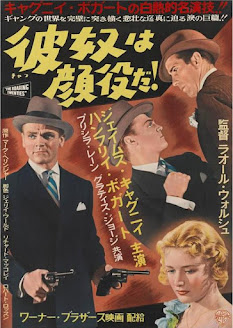 As Ellen Ewing (Claudette Colbert) is about to take her wedding vows to David McLean (Robert Ryan), a stranger accuses her of already being married to another man, Lucian Randall (Dave Barbour), a charge which Ellen denies. Ellen and David attempt to disprove the charges, but a succession of people claim to have been a part of the so-called wedding. Our film this time is The Secret Fury (1950).
As Ellen Ewing (Claudette Colbert) is about to take her wedding vows to David McLean (Robert Ryan), a stranger accuses her of already being married to another man, Lucian Randall (Dave Barbour), a charge which Ellen denies. Ellen and David attempt to disprove the charges, but a succession of people claim to have been a part of the so-called wedding. Our film this time is The Secret Fury (1950).
This is a fun film, primarily because of the performances of Ms. Colbert and Mr. Ryan. Though the script has more holes in it than a piece of Swiss cheese, it does have a decent mystery story, and you will be hard pressed to identify the villain until the very end. Regardless, it is a lesser work of Ms. Colbert.
Despite that, she is very good as a woman being driven slowly mad for no apparent reason. A gifted pianist, with a substantial inheritance from her father, Ellen seems rock solid. However, as more and more strangers contradict her beliefs, her mind deteriorates and she ends up institutionalized, giving Ms. Colbert the opportunity to play a character who has completely lost her place in the world. Ms. Colbert was interested in the part because Mel Ferrer was directing (TCM article).
Also in the cast is Jane Cowl as Ellen's Aunt Clara. We're never quite sure of Aunt Clara. Like many of the other characters, she suspects that Ellen is either lying or has gone insane. Ms. Cowl manages to keep Aunt Clara ambiguous. Likewise, Paul Kelly as DA Eric Lowell also questions Ellen's mental status and becomes suspect to the audience. This, of course, keeps the audience guessing through the whole film.
This was the film debuts for both Philip Ober (playing Ellen's lawyer Gregory Kent) and his then-wife Vivian Vance (playing Leah, the hotel maid) (AFI Catalog). Ms. Vance is quite interesting as the cagey maid. The marriage to Mr. Ober would end nine years later; Ms. Vance would go on to play Ethel Mertz in I Love Lucy. One more actor to watch out for is Jose Ferrer in a cameo appearance.
As I've mentioned before, I'm always on the lookout for women playing physicians in films. We have one here - Elisabeth Risdon as Dr. Twining, Ellen's psychiatrist. Dr. Twining is a competent physician and a kind person. As is often the case in these films, there is no questioning by the patient or their family of the presence of a female physician.












